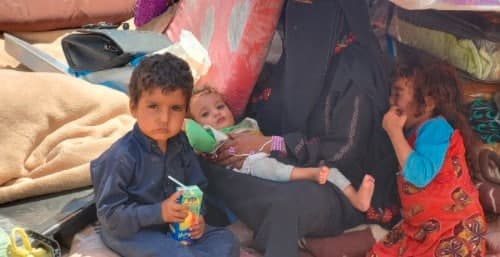There is no doubt that there is great difficulty in delivering humanitarian needs to the Yemeni people, especially food and medical supplies, which made Yemen a country in which famines and epidemics spread, especially cholera, until the Yemeni situation reached the description of the worst humanitarian disaster on the planet, according to the United Nations description of the Yemeni situation for several For years, however, we have not seen a serious move by the Security Council or the international community to change this unfortunate situation.
There are many humanitarian attempts to mitigate the effects of the war on the Yemeni people, as well as many initiatives issued by international figures and international organizations, but they did not succeed in saving the Yemeni people from the clutches of hunger and epidemics, and among these attempts is the Humanitarian Action Group for Yemen, which was launched by international law expert Mahmoud Refaat in 2019 .
The Humanitarian Action Group for Yemen was established through an initiative launched by the President of the European Institute of International Law and International Relations Mahmoud Refaat in 2019 as a humanitarian action cell away from any political bias and away from the positions of the conflicting parties in Yemen.
The group aims to work with international organizations and the international humanitarian community organizations to deliver food and medicine to the Yemeni people, but this group has not yet succeeded in achieving its goals, due to the intransigence of the warring states in Yemen, which have become clear that they are using civilians as a single weapon, tools of war, by starving them, besieging them and preventing them from medicine as well as medical equipment, i.e. in short, basic humanitarian needs.
The failure of the Humanitarian Action Group for Yemen is a blatant example of violating international law and at the same time a model of disinterest in the lives of millions of civilians who suffer from famine and epidemics due to the war imposed on Yemen.
The Humanitarian Action Group as an initiative that comes with the provisions imposed by international law to spare civilians the effects of wars, and the group’s failure to achieve its goals for three years shows the great imbalance in the international community and the promise to respect international law.
Here comes the question about the legal responsibility and before it the moral responsibility for the use of civilians as a weapon in wars. The most important question remains, who is the party that can achieve justice and stop violations against civilians?
The logical answer to this question may be the Security Council as well as the International Criminal Court, but the practical application over the course of 7 years and more clearly showed the silence of the concerned international organizations, deliberately, and their abandonment of their moral and humanitarian role, in addition to their breach of their legal duty and responsibilities for which it was established.





















